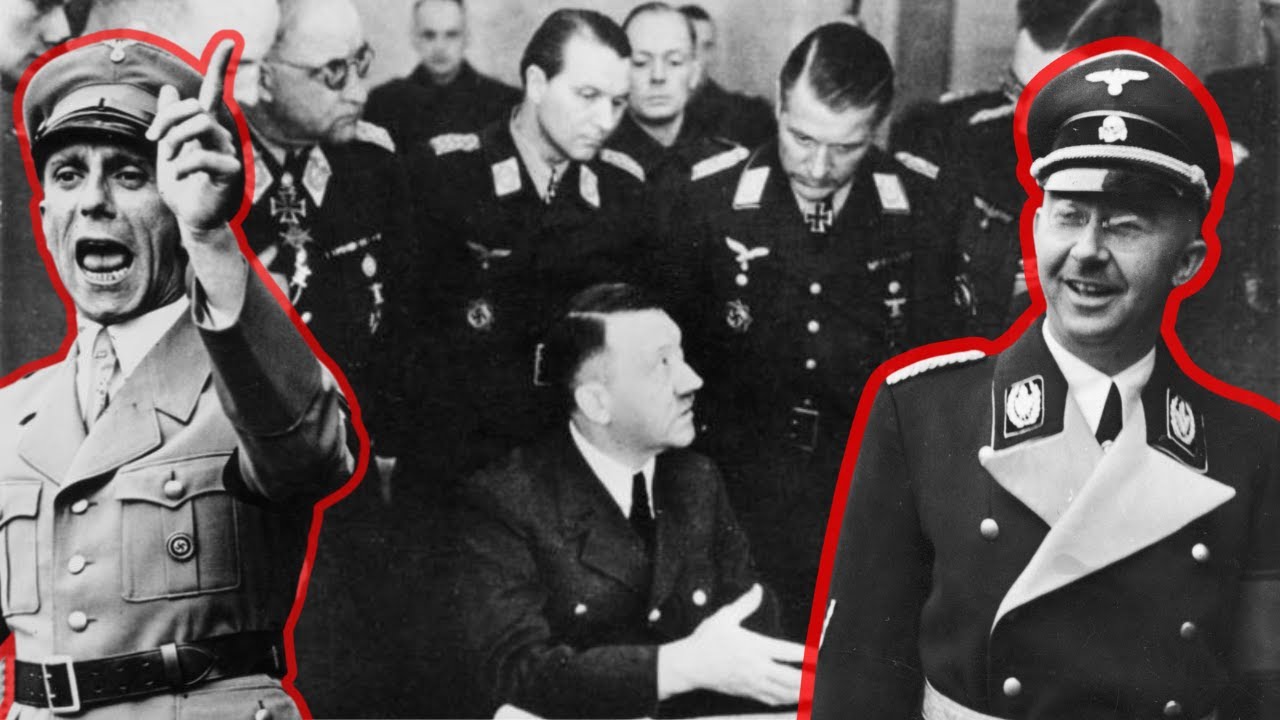[T]hen on the 23rd of April 1945, Himmler met with Count Bernadotte in Lübeck and he claimed he was the provisional leader of Germany. In this meeting, Himmler was acting as Hitler’s successor and he said that Hitler would be dead within days and he hoped that the British and Americans would fight against the Soviets and the remaining parts of the Wehrmacht. Himmler then asked Bernadotte to tell Eisenhower, the Supreme Allied Commander, that Germany wanted to surrender with the Western Allies, but did not want to surrender to the Soviet Union.
Himmler even put this into writing, but days later the BBC broadcast Himmler’s attempted peace negotiations which had leaked, and Hitler was furious. Hitler had been betrayed by the very man who[m] he referred to as a loyal Heinrich, only second to Goebbels in loyalty and devotion to Hitler. The dictator ordered Himmler’s arrest and he flew into a mad rage, ordering the execution of Himmler’s representative inside the Führerbunker: his own brother‐in‐law Hermann Fegelein.
Himmler would, though, go on a power grab as a new government was forming in Flensburg and he believed [that] he was entitled to a position, but the new president, Dönitz, rejected Himmler’s proposals. He then went on the run, and this resulted in the Reichsführer‐SS being captured inside of British custody, where he consumed cyanide and then died. He wasn’t necessarily a man who was trusted to have been a successor by the Führer, but Himmler believed [that] he was entitled to power and a significant and powerful position.
Click here for events that happened today (August 25).
1916: Saburō Sakai, Axis naval aviator, was born.
1933: Berlin agreed to the Final act of the Conference of Wheat Exporting and Importing Countries, and the Jewish Agency together with the German Ministry of the Economy signed the Haʻavara Agreement.
1940: Berlin (barely) survived its first bombing by the British Royal Air Force.
1942: Second day of the Battle of the Eastern Solomons; an Axis naval transport convoy headed towards Guadalcanal was turned back by an Allied air attack. On the other hand, Axis marines assaulted Allied airfields Milne Bay, New Guinea (thereby initiating the Battle of Milne Bay).
1944: The Axis lost Paris to the Allies.
1945: The August Revolution ended as Axis Emperor Bảo Đại abdicated, ending the Nguyễn dynasty. (Coincidentally, ten days after the Empire of Japan announced its surrender, armed supporters of the Chinese Communist Party killed U.S. intelligence officer John Birch, regarded by some antisocialists as the Cold War’s first victim.)
1967: A former member of the American Nazi Party murdered its leader, George Lincoln Rockwell.


